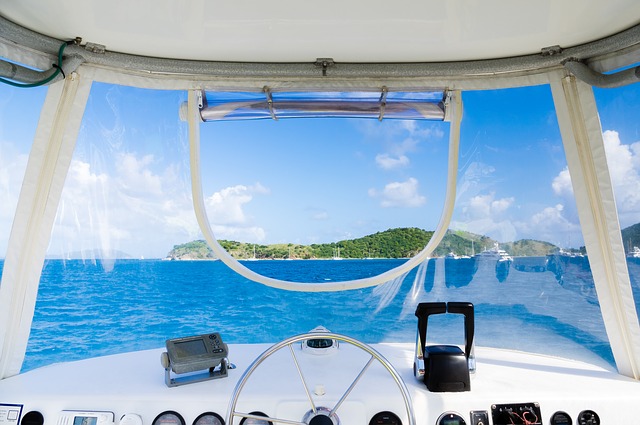
Your boat’s navigation equipment determines the ship’s position, speed, and course, ensuring safety while on the water.
No matter what kind of vessel you own, knowing the basics of marine navigation is essential when spending time on the water. Your boat’s navigation equipment consists of devices that determine the ship’s position, speed, and course, ensuring safety during navigation in shallow waters or when meeting other vessels. These devices are crucial in an emergency or another situation where precision matters. Let’s go over the different types of navigation systems to help you understand them.
AIS
AIS (Automatic Identification System) is an automatic tracking system that identifies ships, their dimensions, course, speed, position, and other data using radio waves frequencies. Its main task is to reduce the risk of ship collisions. Unlike radars, which can detect the appearance of large floating objects near the ship and estimate their current direction and speed, AIS provides more detailed and accurate information about the navigation situation.
If you own a passenger vessel or any ship over 300 tons, you are required to have AIS on board at all times. You are not required to use the system if you operate a smaller craft. But due to the low price of some transponders and many places not requiring a license, many boat owners often voluntarily choose to install them.
GPS
This type of navigation device relies on GPS (Global Positioning System) technology using satellites. It determines with a high degree of a vessel’s coordinates, speed, course, and time required to cover the distance between two given points.
Other features include monitoring the speeds you were going, and it can track where you traveled and how long you stayed at a particular location. In addition to being a security device, this information can be used to log your favorite spots for fishing or diving without having to measure out and mark it on a map physically.
VHF
VHF radios are essential for communication and safety purposes in the event of an accident or running aground. While mobile phones rely on cell reception, data, and wifi, two-way radios are a self-contained communications network. If your cell phones aren’t working, your two-way radio will be there for you. Every VHF radio has a dedicated international distress frequency and should be used solely for emergencies.
Many two-way radios have a telephony feature, allowing for radio communication and a landline or cell phone. The radio repeater stations can be connected to telephone networks. Telephony functions are beneficial if you need to communicate with people who don’t have a two-way radio. VHF radios are also weatherproof and can be submerged in water for up to 30 minutes at a depth of three feet and still function.
Marine Electric Systems, LLC is a Leader In the Maritime Industry
We here at Marine Electric Systems have over 30 years of industry experience. You can trust our team for reliable service and expert craftsmanship in the Maryland, Baltimore, Annapolis, and Baltimore city areas! We’re highly certified and adhere to all ABYC and NMEA regulations. We specialize in top-notch electrical solutions for recreational, commercial, and government boating clients. Anything from electrical refits, to navigation systems, or boating maintenance. To stay up to date on our services, follow us on Facebook, LinkedIn, Pinterest, Instagram, and YouTube. You can also contact us at 410-263-0807.
